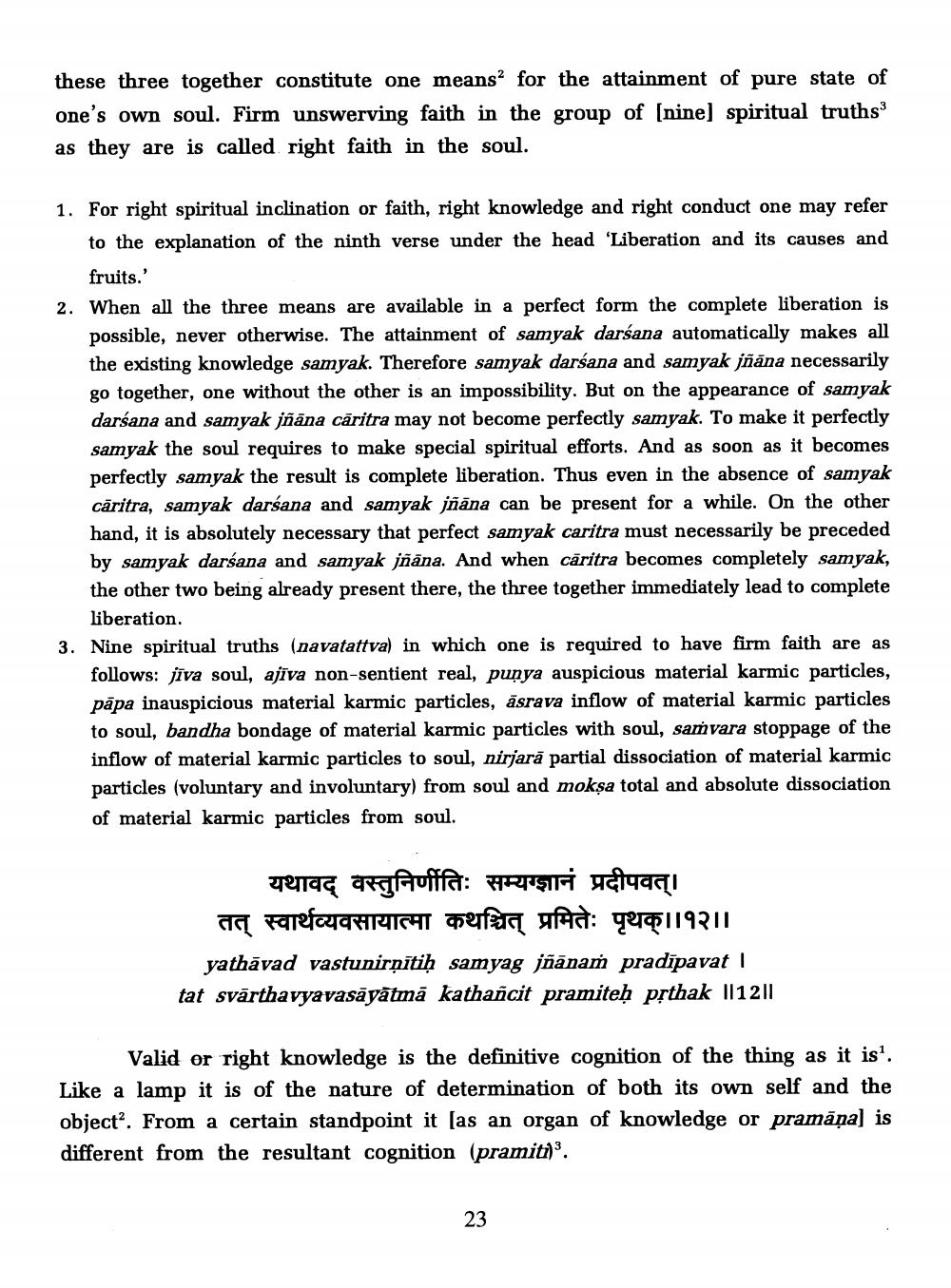________________
these three together constitute one means for the attainment of pure state of one's own soul. Firm unswerving faith in the group of (nine) spiritual truths as they are is called right faith in the soul.
1. For right spiritual inclination or faith, right knowledge and right conduct one may refer
to the explanation of the ninth verse under the head 'Liberation and its causes and
fruits.' 2. When all the three means are available in a perfect form the complete liberation is
possible, never otherwise. The attainment of samyak darśana automatically makes all the existing knowledge samyak. Therefore samyak darśana and samyak jñāna necessarily go together, one without the other is an impossibility. But on the appearance of samyak darśana and samyak jñāna caritra may not become perfectly samyak. To make it perfectly samyak the soul requires to make special spiritual efforts. And as soon as it becomes perfectly samyak the result is complete liberation. Thus even in the absence of samyak căritra, samyak darśana and samyak jñāna can be present for a while. On the other hand, it is absolutely necessary that perfect samyak caritra must necessarily be preceded by samyak darśana and samyak jñāna. And when caritra becomes completely samyak, the other two being already present there, the three together immediately lead to complete
liberation. 3. Nine spiritual truths (navatattva) in which one is required to have firm faith are as
follows: jīva soul, ajīva non-sentient real, punya auspicious material karmic particles, pāpa inauspicious material karmic particles, asrava inflow of material karmic particles to soul, bandha bondage of material karmic particles with soul, saṁvara stoppage of the inflow of material karmic particles to soul, nirjarā partial dissociation of material karmic particles (voluntary and involuntary) from soul and mokṣa total and absolute dissociation of material karmic particles from soul.
यथावद् वस्तुनिणर्णीतिः सम्यग्ज्ञानं प्रदीपवत्। तत् स्वार्थव्यवसायात्मा कथञ्चित् प्रमितेः पृथक्।।१२।। yathāvad vastunirņītiḥ samyag jñānań pradīpavat tat svārthavyavasāyātmā kathancit pramiteh prthak ||12||
Valid or right knowledge is the definitive cognition of the thing as it is?. Like a lamp it is of the nature of determination of both its own self and the object. From a certain standpoint it (as an organ of knowledge or pramāņa] is different from the resultant cognition (pramita).
23




